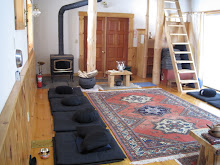It is 5:30 a.m. and I choose to believe the mosquito woke me up.
The only other sounds are the crickets, a distant dog and just now, minutes after waking, the soft sounds of a distant Mosque’s call to prayer. I’m not sure why it sounds so distant, or so quiet today.
Perhaps even the Muezzins are staying home? Perhaps it is just too early?
The truth is, as I sit and type here in my pre-dawn bed, I woke up because of a dream that was more honest about my feelings of this week’s events than I was admitting. And I’m unnerved. Not scared, but unnerved.
So the short attention span version of the unfolding story:
• Kampala, the biggest city in Uganda and where I live, was not always here. It and surrounding territory once belonged to the Buganda Kingdom.
• The Buganda King’s role is now largely ceremonial, moral and cultural leadership—kind of like England’s royal family . . . except for with much more intense loyalty by the Baganda people to him than perhaps British have to their royalty.
• There has been some tension historically between the King and President Museveni (in power since 1986), over land and power. They are most distinctly NOT friends. These tensions very quickly run along ethnic lines. Ethnic tensions hide just below the surface—as though all Baganda are responsible for what the King does, and should blindly stand up for it, and all the President’s ethnic group is responsible for what he does, and should blindly stand up for it.
• The King of Buganda was going to visit (today) a highly contested area on the edge of his Kingdom, and the Government just told him not to. The Government says that he has to meet some conditions first, saying they cannot guarantee his safety there and that his visit will cause unrest. The Buganda Kingdom says he shouldn’t have to ask permission to move freely about his own kingdom.
• There was a standoff, neither party agreeing to talk with each other, and it sparked the tension between the government and the Buganda (Baganda members of parliament walked out of session together on Thursday), and gave rise to all the tensions between ethnic groups—including, for some, Baganda anger that other ethnic groups have taken over Kampala—historically Buganda land.
• (On the off-chance your eyes don’t glaze over at the mention of African political events: http://english.aljazeera.net/news/africa/2009/09/200991191146684575.html or http://news.bbc.co.uk/2/hi/africa/8251907.stm )
First, I feel safe, because—like Ames in the VEISHA riots (for you Iowans in the crowd)—most people are good people who just love their families, and are staying out of it. It was dangerous outside in many areas yesterday because of a few roaming gangs of men (didn’t see or hear of any roaming gangs of women), so most people stayed home and the place was simply very, very quiet. I arrived to work in the morning, only to hear that we should all turn back around and stay at home, inside, until at least Sunday. I rode with a coworker to pick up her daughter at school, and she was one of a wave of parents doing so.
Judging by the lack vehicles passing, radios, and other morning sounds, I am taking a wild guess that today will be quiet, too, except for where it is not. I have stockpiled food and DVDs, and have plenty of work to do to keep me busy. Safety-wise, I’ll be fine.
But I’m still unnerved enough to wake up at 5:30am and listen to the crickets, make myself a cup of tea, and just listen. I’m not worried about my safety, but I’m unnerved.
First, I’m unnerved because of the silence of the media.
Some of us see media like oxygen, don’t we? And I am having trouble getting information. Since the Ugandan Government stopped certain radio stations from broadcasting (and, I hear unofficially, banned coverage of the violence on the Ugandan TV news), my best information has come from Al Jazeera and BBC. American news stations don’t cover Africa. (Do they not cover it because Americans aren’t interested? Or are Americans not interested because we don’t know enough about it from the media to know how it connects to our lives?) I have mixed feelings about the Government forcing radio stations to stop broadcast. My American sensibility of free speech is outraged. My slowly-growing sense of this region recognizes this is a place where ethnic tension and hate-filled talk radio have incited war and genocide, within our lifetimes. I’m still not sure what I think, only that the media silence unnerves me.
Second and maybe more importantly, I’m unnerved because I feel alone—I realize how little I know about the world around me.
A friend of mine was stopped on the way home on Thursday, when things were starting to get bad. She’s Ugandan, and was in a car with a few Mzungu (white people), mostly children. They were going to her home together. Her home is in a Baganda stronghold area of town. They turned a corner in their car, and found the road had been blocked by heaps of dirt and tires by a group of men with way too much testosterone going on, and way too many Us vs. Them thoughts. They made them stop, let the Mzungu pass, and made my friend (who is Baganda) get out of the car and sing the Baganda National Anthem. Luckily, she knows it. But later, she was talking to another, mutual Ugandan friend and said what was interesting was how she felt when she was singing it. She said she started to really feel this pride in her people, and loyalty to the King. And afterward, she was riled up—she wanted, like many do, to go with the King on the forbidden visit, to show her allegiance to her people and her King. She wanted to prove that all the stereotypes she’d ever heard about the Baganda being meek and docile—were wrong.
The mutual Ugandan friend of hers and mine was reflecting to me later—if she, our mutual friend:
-has travelled and made friends with all ethnic groups,
-is a female (without common male ideas about being a man who needs to have power over the world around him, and who feels somehow slighted when he doesn’t),
- has a good job and a family who supports her. . .
. . .if SHE can get swept up in it, what about all these young men who believe being a man is all about having power, but who have no power— no jobs, no education or exposure that could have helped them to see things in multiple ways, and nothing to lose? That is unnerving. And, when combined with the greed and manipulation of the powerful, it is the history of conflict.
I have thought many times that, as often as I get confronted with annoying stereotypes about white women here, that Uganda could use with some good, public multi-cultural education. We need that education, plus the community discussions my organization facilitates about power sharing and what it means to be a man or a woman who shares power vs. one who uses power over others. But now all that seems like more than a good idea—it seems like a lifeline.
I’ll think about that more today, as I listen to the birds wake up, and hopefully, look out my window all day, til the crickets and calls to prayer come back in the evening.
Subscribe to:
Post Comments (Atom)





Keep safe, Sara. Thank you for sharing the latest news. I will try not to worry about you. Much love, Sofia.
ReplyDelete